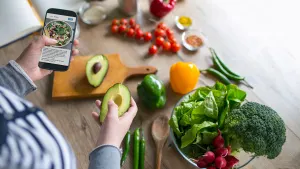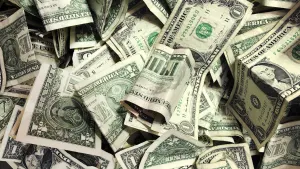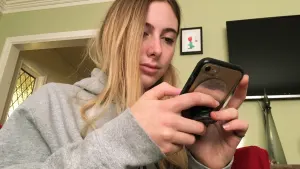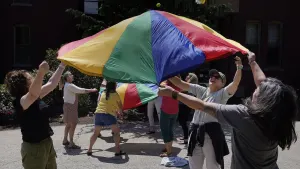More Stories
The coronavirus death toll in the U.S. is approaching 400,000.
Tonight, just hours before being sworn in as our 46th president, Joe Biden will attend a somber inauguration-eve ceremony at the Lincoln Memorial. There, 400 lights will be lit along the perimeter of the reflecting pool. Each is meant to represent approximately 1,000 Americans who have died during the pandemic. There will be similar commemorations in New York at the Empire State Building, and other landmarks around the country.
Despite skyrocketing COVID-19 cases, and deaths, President Donald Trump just lifted the travel restrictions imposed on Brazil and much of Europe. The change goes into effect on Jan. 26, six days after Trump leaves office. President-elect Biden is expected to reverse the decision after his swearing in.
As we have been reporting, the national vaccination rollout has been slow and frustrating for many. Only 12.2 million people have received one dose of one of the vaccines. And just 1.6 million have received both doses, that means less than 0.5% of the U.S. population received both doses of a COVID vaccine. The Trump administration had promised to vaccinate 20 million Americans by the end of 2020.
Many people have had their appointments canceled, because vaccine centers have run out of doses, or their appointments have been overbooked. So how do we make sure older Americans, and those most vulnerable can get the vaccine?
News 12's Elizabeth Hashagen was joined this morning by Dr. Maria Carney. Dr. Carney is chief of geriatric and palliative medicine at Northwell Health. She's a professor at Zucker School of Medicine, and the former Nassau County commissioner of health.
We know getting a vaccination appointment can be a huge challenge. State and county vaccination sign-up websites have crashed under the weight of tremendous traffic, and health department phone lines have been overwhelmed.
For older Americans, there's frustration
but also a fear of being left behind. What if patients don't
have an email or a reliable phone, especially our vulnerable older adults?
Below is what Dr. Carney suggests:
Health care systems around the world are struggling to cope with rising numbers of COVID-19 infections as they race against the clock to vaccinate the vulnerable.
Where can I get the COVID-19 vaccine? Click here to see the list.
Are we spending the same money on logistics and distribution that we spent on vaccine development? Dr. Carney talks about the distribution:
Johnson & Johnson is expected to deliver preliminary late-stage trial results for its one-dose COVID-19 vaccine candidate by the end of January.
The J&J vaccine was developed by the company's Belgian unit, Janssen Pharmaceutica, and is based on viral adenovirus vector technology, the same approach used to create the University of Oxford-AstraZeneca vaccine. This type of shot is easier to scale up than those developed by Pfizer-BioNTech and Moderna, which are based on messenger RNA technology. Dr. Carney talks about the vaccine:
More from News 12
1:28

5 simple steps for long-term benefits to your health and heart
1:32

8 tips for working safely during hot weather
3:31

Guide: Ways to set your child up for financial success
3:18

Guide: The importance of good sleep and how to get it

Guide: Mental health resources available in the tri-state
9:36
